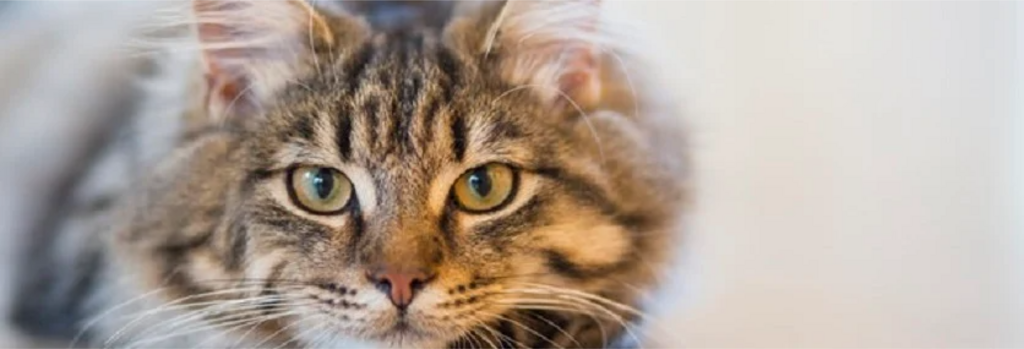Last Updated: 03/06/2025
Looking After Your Senior Cat
Learn how to care for your senior cat and improve their comfort and health in their golden years.
Author: Dr Gillian Hill BVSc (Hons)
Reading Time: 11 minutes - short read
Did you know that according to Guinness World Records, the oldest cat ever lived to be 38 years and 3 days old? That's an incredible feat! While most cats don't reach such a ripe age, it's important to remember that feline aging is much faster than human aging.
In fact, a cat as young as seven is considered a senior citizen. That might seem surprising, but with proper care and attention, your cat can enjoy a long and healthy life well into their golden years.
From nutrition to grooming, we've put together a complete guide to senior cat care.
Senior Cat Diet and Nutrition

As our cats age, they require different nutrition to help keep them happy and healthy. There are a number of specifically formulated foods for senior cats to help meet the needs of your aging cat. These 'senior' cat diets contain ingredients to help alleviate the symptoms of aging and keep your feline friend fighting fit! But what are these ingredients, and how do they benefit senior cats?
Senior cat food - What's the difference?
- Addition of Omega Fatty Acids - Almost all senior pets will develop some degree of arthritis as they age. Omega fatty acids help to support joint health and function to keep your cat healthy and active.
- Addition of Carnitine -Carnitine helps to promote the metabolism of fat to energy which supports lean muscle mass and an ideal body weight. This is perfect for senior cats, who are often less active and prone to weight gain.
- Controlled Sodium Levels - Diets that are too high in sodium can cause complications with kidney and heart disease, both of which are not uncommon in senior cats. Senior diets with controlled sodium levels help to maintain their heart and kidney health.
- Controlled Phosphorus Levels - Diets with high levels of phosphorus can put undue stress on your senior cat's kidneys. Kidney disease is one of the most common complication of aging in cats, so senior diets tend to be formulated with controlled phosphorus levels which helps support the kidneys.
- Addition of Vitamin C and E - Vitamins C and E have an antioxidant effect which helps to support your senior cat's aging immune system.
- High Quality Ingredients - Premium diets that are formulated specifically for senior cats are made with high quality ingredients to ensure that they are easy to digest.
Tip: Many elderly cats will require a veterinary therapeutic cat foods for dental, kidney, or urinary care. Always ask your vet if you are interested in a therapeutic or prescription diet.
Best senior cat foods
Joint Care for Cats
Just like humans, cats can start to suffer from arthritis and joint pain as they age. However they don't typically show their pain with an easy-to-spot limp. Cats are notoriously stoic and can hide their pain extremely well, which means that your cat may be suffering without showing obvious syptoms.
Signs of arthritic pain in cats include:
- Less interested in playing or other enjoyable activities
- Reluctance to jump onto furniture
- Less grooming, particularly over painful areas like the hips
- Matted fur over the hips (due to reduced grooming)
- Vocalising when picked up
- Increased frequency of accidents outside the litter tray
To help support your senior cat's joints and manage arthritis, providing them with a soft, warm place to sleep is crucial. See our cat bed buying guide for more information.
Your vet may also recommend a joint care supplement containing green lipped mussel, omega oils, chondroitin, or glucosamine.
For more information on joint support for cats, take a read through our guide Arthritis Care for Cats.
Best joint supplements for cats
Common illnesses in senior cats

As your cat ages, their risk of developing certain diseases increases. Common illnesses in senior cats include kidney failure, urinary disease, hyperthyroidism, and dental disease. It is important to know the signs to watch for that may be an early indicator of these diseases.
Symptoms of concern in elderly cats:
- Drinking more water than usual (polydipsia) or urinating a greater volume (polyuria) - may indicate kidney failure, hyperthyroidism, diabetes, or urinary disease.
- Reduced appetite - may indicate dental disease, kidney failure, or general illnesses such as infections.
- Increased appetite - can indicate hyperthyroidism or diabetes.
- Weight loss - can indicate any of the common illnesses.
- Vomiting - can indicate gastrointestinal disease, as well as kidney disease or hyperthyroidism.
It is vital that all senior cats have regular check-ups at their regular veterinarian, ideally every 6 months. This helps your vet to identify any age-related health problems early to nip them in the bud.
By keeping your senior cat's health and wellbeing needs in mind you can help to ensure that they live a long and happy life with you. Who knows, maybe they will even be the next guinness world record holder!
History
Our experts continually monitor the health and wellness space and we update our articles when new information becomes available.
Tue Feb 11 2025
Edited by Dr Teagan Lever BVSc (Hons)Dr Gillian Hill BVSc (Hons)
Veterinarian
Dr. Gillian loves being able to provide depth and detail to pet parents questions, and give up to date, evidence based advice. She loves the variety of pets and inquiries she receives - she especially loves the 'curly' questions that require some research! Seeing the gorgeous photos that pet parents send through of their babies is a highlight of the day! Gillian enjoys to further her veterinary knowledge, and has completed further training in ultrasonography, behaviour and backyard poultry!

